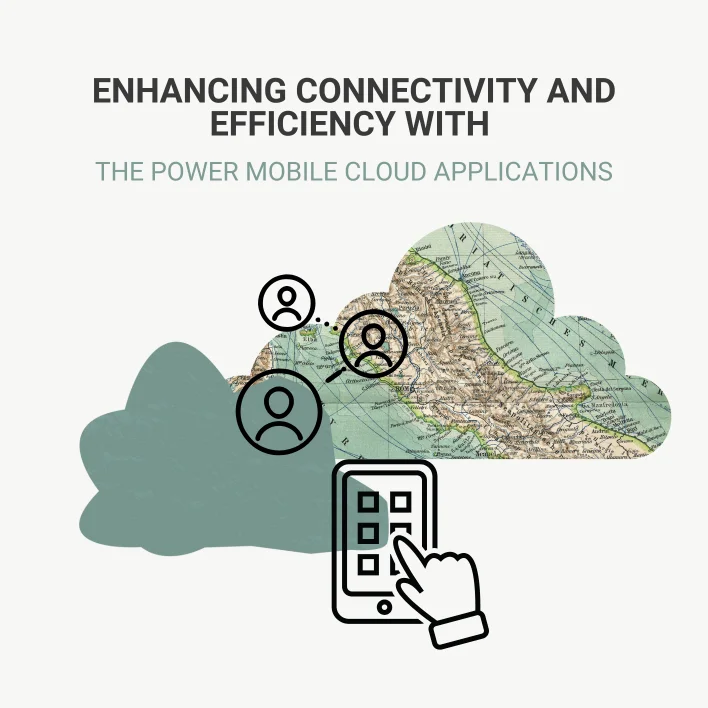The New Era of AI in 2025: From Gemini 3 to Creative AIs
Learn about the best AI tools for 2025, including Nano...
We use cookies for our website to give you the most relevant experience by remembering your preferences. By clicking “accept”, you consent to use of ALL the cookies
This website uses cookies to improve your experience while you navigate through the website. Out of these, the cookies that are categorized as necessary are stored on your browser as they are essential for the working of basic functionalities of the website. We also use third-party cookies that help us analyze and understand how you use this website. These cookies will be stored in your browser only with your consent. You also have the option to opt-out of these cookies. But opting out of some of these cookies may affect your browsing experience.
Necessary cookies are absolutely essential for the website to function properly. These cookies ensure basic functionalities and security features of the website, anonymously.
| Cookie | Duration | Description |
|---|---|---|
| cookielawinfo-checkbox-functional | 11 months | This cookie is set by GDPR Cookie Consent plugin. The cookie is used to store the user consent for the cookies in the category “Analytics”. |
| cookielawinfo-checkbox-functional | 11 months | The cookie is set by GDPR cookie consent to record the user consent for the cookies in the category “Functional”. |
| cookielawinfo-checkbox-necessary | 11 months | This cookie is set by GDPR Cookie Consent plugin. The cookies is used to store the user consent for the cookies in the category “Necessary”. |
| cookielawinfo-checkbox-others | 11 months | This cookie is set by GDPR Cookie Consent plugin. The cookie is used to store the user consent for the cookies in the category “Other. |
| cookielawinfo-checkbox-performance | 11 months | This cookie is set by GDPR Cookie Consent plugin. The cookie is used to store the user consent for the cookies in the category “Performance”. |
| viewed_cookie_policy | 11 months | The cookie is set by the GDPR Cookie Consent plugin and is used to store whether or not user has consented to the use of cookies. It does not store any personal data. |
Functional cookies help to perform certain functionalities like sharing the content of the website on social media platforms, collect feedbacks, and other third-party features.
Performance cookies are used to understand and analyze the key performance indexes of the website which helps in delivering a better user experience for the visitors.
Analytical cookies are used to understand how visitors interact with the website. These cookies help provide information on metrics the number of visitors, bounce rate, traffic source, etc.
Advertisement cookies are used to provide visitors with relevant ads and marketing campaigns. These cookies track visitors across websites and collect information to provide customized ads.
Other uncategorized cookies are those that are being analyzed and have not been classified into a category as yet.
Cyberia Tech, Inc. respects your privacy. This Privacy Policy explains how we collect, use, and share your information. By using our services, you agree to this policy. If any other agreements conflict with this Privacy Policy, the terms of those agreements prevail.
Cyberia Tech complies with the EU-US and Swiss-US Privacy Shield Frameworks for handling personal data from the EEA, UK, and Switzerland. In case of any conflict, the Privacy Shield Principles prevail. Learn more at Privacy Shield. Key Definitions
Information linked to an individual, transferred from the EEA, UK, or Switzerland to the U.S.
Data revealing race, religion, health, sexual orientation, and similar categories.
Effective Date: [ 2026 / 03 / 04 ]
Welcome to The Cyberia Tech ! By accessing or using our website or services, you agree to
comply with and be bound by these Terms of Use and our Privacy Policy. If you do not agree with
these terms, please do not use our Services.
Loading
0 %

The rapidly evolving landscapes experiencing the power of mobile cloud applications. It’s not staying tuned anymore; we are talking about staying connected always 24/7 with these apps.
Smartphones have become incredibly powerful tools that can handle a wide range of tasks, from helping us stay connected with loved ones to managing business operations. The blog will help you to know more about them and their benefits.
Table of Contents
Mobile cloud applications are software applications that use the power of remote servers to store and process data, instead of relying only on the mobile device. These apps allow users to easily access and use different services and resources on the internet.
This means you don’t need a lot of storage or processing power on your mobile device. The On-the-go Productivity Boosting all you need with Mobile Cloud Applications.
The advantages of mobile cloud applications:
Mobile cloud applications bridge the device gap, allowing users to access their data and applications from any location, at any time, as long as they have an internet connection.
This level of connectivity provides seamless collaboration, real-time updates, and mobility. Mobile cloud applications keep users connected and productive no matter where they are, whether they are sharing files, synchronizing calendars, or accessing enterprise systems.
By utilizing cloud infrastructure, mobile cloud applications provide scalability and cost efficiency that traditional mobile applications frequently need to improve. Businesses may extend their application capabilities to match increasing user demands with cloud-based storage and processing without investing in costly hardware upgrades.
This adaptability enables enterprises to reduce expenses by only paying for the resources they utilize and avoiding superfluous infrastructure investments.
The seamless synchronization of data across different devices is one of the major benefits of mobile cloud applications. When you update a document on your smartphone or tablet, the changes are automatically mirrored across all of your devices, maintaining data consistency and eliminating the time-consuming process of manual transfers.
Furthermore, cloud storage works as a dependable backup solution, protecting your data against device loss, theft, or hardware failure.
Mobile cloud applications improve cooperation by giving users real-time access to shared documents, project management tools, and communication channels.
Multiple team members can collaborate on the same document at the same time, give input, and track changes, increasing productivity and streamlining procedures. Businesses can use cloud-based collaboration to break down geographical barriers and build effective teamwork.
Mobile cloud applications are not restricted to a single operating system or device. They are accessible via web browsers or dedicated programs on a variety of platforms, including smartphones, tablets, and desktop computers.
This cross-platform compatibility ensures that customers can access their data and programs regardless of the device they use, improving ease and user experience.
Cloud computing and mobile computing are coupled on a wireless network in mobile cloud computing technology. This cutting-edge technology enables the delivery and execution of high-quality apps on mobile devices independent of their operating system, storage capacity, or computational demands.
Mobile cloud computing provides end users and application developers with more speed and flexibility. The mobile cloud includes cloud-based data as well as apps and services designed for mobile devices.
It combines mobile application development and cloud-based services, allowing cloud services and apps to be delivered to mobile users. Remote data centers store and run the relevant data.
Mobile cloud computing is a natural development of mobile and cloud computing technologies that have proven to be a game changer in how we use our mobile devices for work and play.
Consider how many people use their mobile devices on a daily basis. That high usage demonstrates how popular mobile cloud computing is and why it will only become more popular in the future.
In fact, Mordor Intelligence predicts that the mobile cloud market will reach $118.70 billion by the end of 2026.
We briefly mentioned a few benefits of cloud computing earlier, but now let’s dive into more specific details:
Mobile cloud computing offers fast and flexible capabilities. Mobile cloud computing simplifies the process for developers to create and share mobile app resources with end-users. As a result, mobile applications can be created and updated more quickly.
Mobile cloud computing allows users to share resources.
Mobile apps that are powered by the cloud are not limited by the processing power and storage capacity of a mobile device. You can run all processes that require a lot of data from the cloud.
This means that any mobile device, regardless of its operating system, can use mobile cloud apps as long as it has access to a network. Users can easily enjoy cloud computing using Android or iOS devices.
Mobile cloud computing utilizes integrated data to enhance the user experience. Mobile cloud computing allows users to easily and safely gather and combine information from various sources, regardless of the data’s location.
Here are some benefits of using applications designed for mobile cloud computing architecture:
Additionally, applications are designed to be user-friendly and can easily be integrated into your device. Applications are more dependable and can handle larger workloads.
Mobile backend development is critical to the smooth operation of mobile cloud apps. The backbone of the application is a well-designed and powerful mobile backend, which enables efficient data management, user authentication, push notifications, and connection with other APIs and services.
Developers may focus on designing compelling user interfaces and enhancing the entire user experience by using mobile backend development.
Mobile cloud apps may leverage the potential of scalability, security, and seamless device synchronization by integrating a dependable backend infrastructure. High speed, real-time data access, and a rich user experience are ensured by the synergy between mobile backend development and mobile cloud apps.
There are two similar types of applications in mobile cloud computing (MCC). Here are the following:
It’s a type of software that allows you to do tasks on your mobile device, like processing and storing data, using the power of the cloud. This means that the actual work is done on remote servers, while your mobile device acts as the interface for accessing and presenting the information.
To use this, you’ll need a reliable internet connection and a cell phone with a browser. This feature allows you to use your smartphone with cloud technology. Here are the key characteristics:
2. Mobile Web Services:
More network traffic is used by mobile devices in mobile web services. It could cause problems for web services such as a mismatch between desktop computers’ resolution and details.
In order for the mobile device to transmit precise information about the condition of the device and the user, it must be aware of the service and how to access it. Following are some ways to enable mobile web services:
Using mobile cloud applications is not just a passing fad. It is a smart decision to keep up with the constantly changing digital world and stay ahead in today’s interconnected society.
What is a mobile cloud application?
Mobile cloud computing focuses on delivering applications to mobile devices. These mobile applications are so lightweight that they may be deployed remotely. Mobile cloud applications may be created and updated quickly using cloud services.
What is an example of a mobile cloud app?
Several popular programs include Gmail, Grammarly, and Dropbox. Outsourcing the hosting of essential components to a third party is crucial to the IaaS paradigm for cloud-based app development. The developer of a mobile app is responsible for providing both the application itself and any required middleware.
The use we make of our mobile devices has been revolutionized by mobile cloud applications. It provides us with amazing connectivity, scalability, and efficiency. As more businesses and individuals depend on mobile technology, using cloud computing infrastructure offers a strong and dependable solution.
Mobile applications can provide smooth experiences, encourage teamwork, and improve productivity by utilizing the cloud’s power. We are here to help you with services and turning your idea into an app.
You Can Get More Information!
